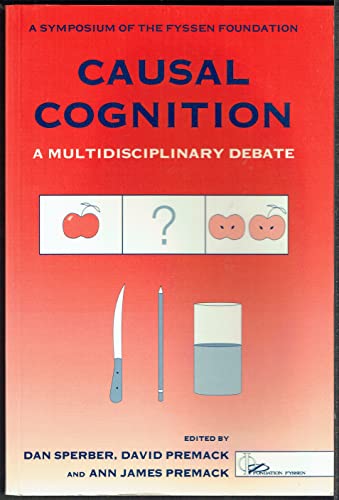
Synopsis
While most psychologists agree that understanding cause-effect relationships is fundamental to the study of cognition, exactly how those relationships should be interpreted is open to serious debate. In Causal Cognition, leading experts from a range of disciplines--including philosophy, anthropology, and comparative, social, and developmental psychology--come together to offer an interdisciplinary, cutting-edge account of the field. Reflecting on a range of topics, from the role and forms of causal knowledge (both in animal and human cognition) to the development of human causal understanding, the various contributors highlight areas where different approaches converge and conflict. The result is an insightful status report of a fascinating subject that will appeal to students and researchers across the social sciences.
"synopsis" may belong to another edition of this title.
About the Author
D. Sperber is at CREA, CNRS, Paris. D. Premack is at CNRS, Paris.
Review
`This book brings together approaches from disciplines such as comparative psychology, social psychology, developmental psychology, anthropology, and philosophy to present the newest developments in the study of causal cognition and to discuss their different perspectives.'
Journal of Consumer 20:4, Dec 1997
"About this title" may belong to another edition of this title.
Other Popular Editions of the Same Title
Search results for Causal Cognition: A Multidisciplinary Approach (A ^AFyssen...
Causal Cognition : A Multidisciplinary Approach
Seller: Better World Books Ltd, Dunfermline, United Kingdom
Condition: Good. Ships from the UK. Former library book; may include library markings. Used book that is in clean, average condition without any missing pages. Seller Inventory # GRP38156014
Buy Used
Quantity: 1 available

